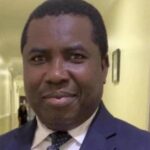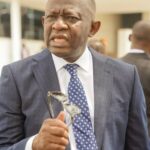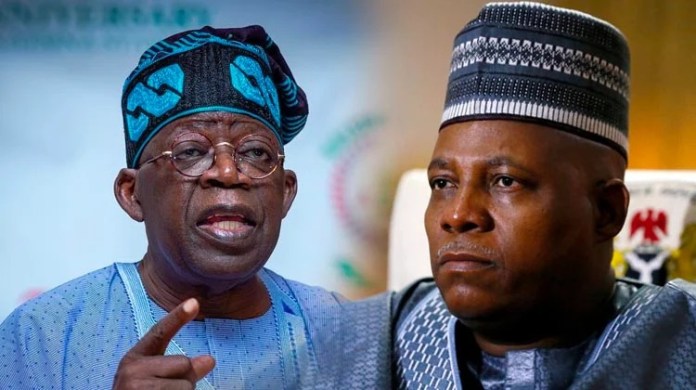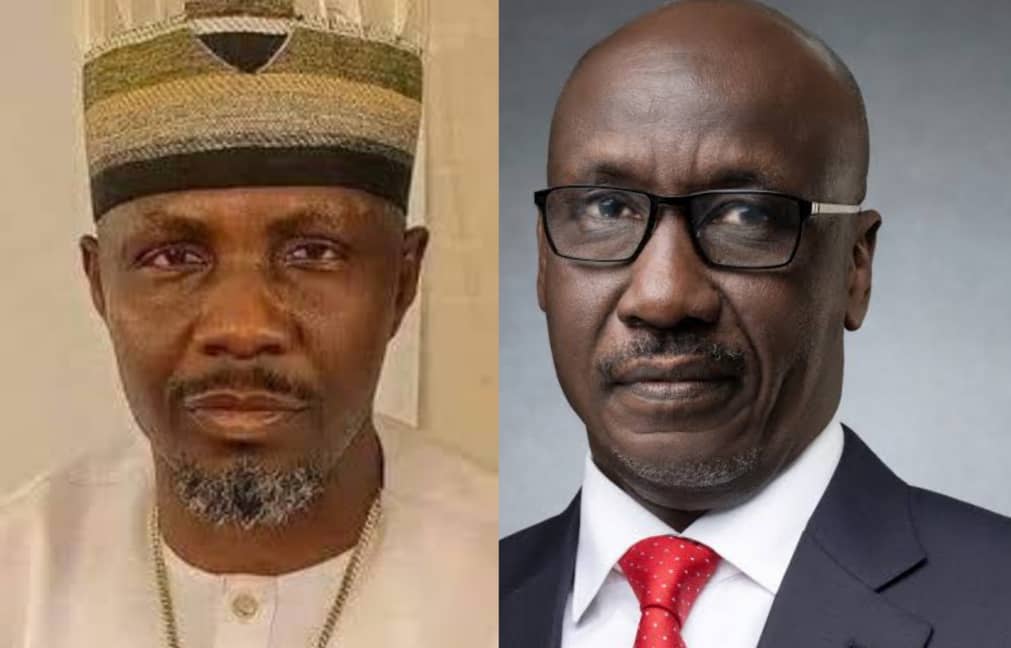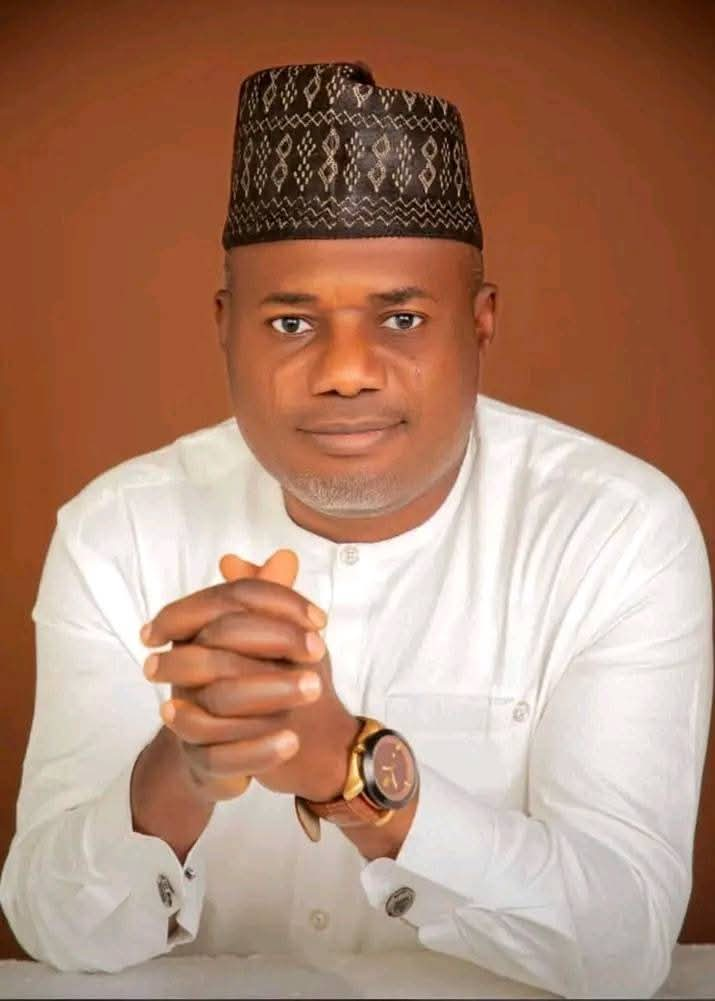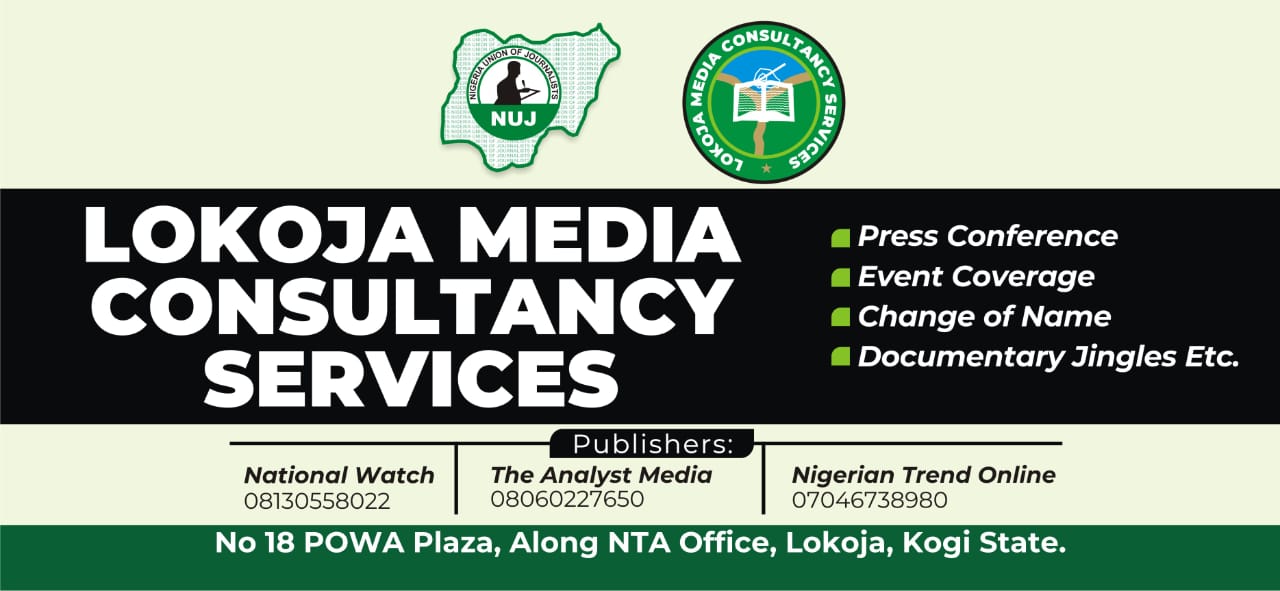
By News Desk
As he did in the run-up to the APC presidential primary, Bola Tinubu has so far campaigned in states where his party is either in government or has local strongmen.
ByBakare Majeed December 29, 2022 Reading Time: 5 mins read
To win the presidential election, Bola Tinubu apparently believes that he must retain the support that his All Progressives Congress (APC) enjoyed in the core North in the 2015 and 2019 elections and also improve on the ruling party’s fortune in the South, particularly the South-east and the South-south – two regions that have been outside the control of the APC.
Unlike in the past two election cycles, 2023 has been projected as a four-horse race with Peter Obi of the Labour Party, former Vice President Atiku Abubakar of the Peoples Democratic Party and Rabiu Kwankwaso of the New Nigerian Peoples Party (NNPP) projected as strong challengers. Also, the region of origin of the candidates may reflect in the sharing of votes.
Atiku and Mr Kwakwaso are from the North-east and North-west respectively, while Mr Tinubu and Mr Obi are from the South-west and South-east respectively. If the candidates do well in their home regions, it leaves the Northcentral and Southsouth as potential battlegrounds. However, Atiku’s running mate, Ifeanyi Okowa, is from the South-south.
In 2015, the ruling APC did not get 20 per cent of the votes cast in any of the11 South-east and South-south states except Edo, where Mr Buhari polled 40 per cent of the total votes cast.
However, the fortune of the party improved in 2019 when President Buhari polled a total of 403,968 from the five Southeast states, more than twice the 198,248 he got in 2015. In addition, the APC now has two governors in the region, David Umahi of Ebonyi and Hope Uzodinma of Imo State.
Unsurprisingly, Mr Tinubu appears to have prioritised these two states in the region in his campaign. He has held rallies and engagements there, leveraging on the governors to mobilise supporters for the rallies and all.
The campaign council has not kept to its timetable for rallies. It appears that the idea now is to focus on states where the standard bearer has strong allies.
In Abia State, Mr Tinubu also has a strong political associate in the senator, Orji Kalu. As a matter of fact, APC has one senator and two members of the House of Representatives in the state, but APC is facing a crisis in the state due to dispute over its governorship ticket.
Uche Ogah and Ikechi Emenike won parallel primaries conducted by different factions of the party and have been in court since. However, Mr Emenike is the coordinator of the party’s presidential campaign in the state.
TEXEM Advert
With this tussle, the party has not been able to leverage its strong presence in Abia North. In addition, there is Governor Okezie Ikpeazu’s factor. The governor, who is a member of the PDP rebel G5 governors, is not backing the PDP presidential candidate but is yet to say who else he will root for.
In Enugu State, APC remains very weak and it is unclear how much help the endorsement of Mr Tinubu by a former governor of the state and serving PDP senator, Chimaroke Nnamani, will be. Meanwhile, Anambra State is the home state of Mr Obi.
Overall, the opening of the newly built second Niger Bridge for temporary use during the holiday has presented Mr Tinubu and the APC with a strong campaign tool. He has endured having to defend the record of the current administration. Most times, he has been forced to resort to “I am Bola Tinubu, he is Muhammadu Buhari” and to campaign with his record in Lagos.
In the South-south, Mr Tinubu has focused on Delta, Bayelsa and Cross River where he has close allies. They include Governor Ben Ayade in Cross River, Minister of State for Petroleum and former governor Timipriye Sylva and David Lyon in Bayelsa, and Ovie Omo-Agege, the Deputy Senate President and APC governorship candidate in Delta State.
At a town hall meeting in Cross River, Mr Tinubu intervened in the post-primary dispute between John Enoh and Itu Bassey. The former lost the governorship primary and approached the court to nullify the election.
“I saw you (Enoh) at the airport and I begged you and I am still begging you publicly, let it end, let it end. Please, enough lawsuits,” he said.
This campaign strategy is similar to what Mr Tinubu deployed in the APC primary where he focused his energy on states that promised votes. An erstwhile ally, Babachir Lawal, who abandoned him after Mr Tinubu picked a Muslim as his running mate, later claimed that Mr Tinubu refused to visit any of the South-east states because he considered it a waste of resources.
“During the convention, he (Tinubu) did not even allow us to go to the South-east. He said it is a waste of time and money. South-south is not his territory, so where is he going to get the votes?,” the man who was sacked by President Buhari from his position as Secretary to the Government of the Federation over a corruption allegation, scoffed after vowing to help stop Mr Tinubu.
ⓘ
As pointed out earlier, to win, Mr Tinubu may need to do better than the incumbent president did as in the South. This is because without President Buhari on the ballot, the ruling party faces a stiffer challenge than in 2015 and 2019 from Atiku of the PDP and Mr Kwankwaso of the NNPP in the North-west and the North-east. Being from the South, Mr Tinubu will be counting on the APC governors in the zones to deliver the votes.
He will need President Buhari to charge the base. The president has only joined Mr Tinubu during the flagoff of his campaign in Jos, Plateau State. Last week, however, the presidency issued a statement that Mr Buhari is fully in support of Mr Tinubu’s election but will not allow campaign rallies distract him from official functions.
PREMIUM TIMES had also reported that both men held a closed-door meeting on that Wednesday at the Villa. Having the president on the campaign trail, particularly in the North-west and North-east, may help Mr Tinubu’s bid to inherit the traditional bloc votes of Mr Buhari.
So far, the strategy of focusing on states with strong allies seems to be working. Two of the three other major candidates, Atiku and Mr Obi, have experienced embarrassing campaign moments. In Lagos, attendees at the PDP presidential rally could not fill the venue, while Mr Obi had an abysmal outing in Lokoja, the Kogi State capital, and Port Harcourt in Rivers State.
Inevitably, Mr Tinubu and his team will have to visit states where he does not have local strongmen, whatever the colours he allotted to them in his ledger.
Tinubu on Tertiary Education
Last week, Mr Tinubu also met with labour unions on his plans for the country. The issue of the Academic Staff Union of Universities came up again, and he promised that he will copy and paste the American student loan system. In his speech, he argued that under his watch, there would be no more ASUU strikes.
“On ASUU strike, I know so many of you are tired, don’t worry about that—there will be no more strikes, we will have understanding—you will design relevant curriculum, relevant courses that will be valuable to this economy and provide jobs, and you will design corresponding loans, that will facilitate brilliant students for admission for those courses, and you peg the interest rate at the payment of those loans. It is simple, even copy and paste in America or London. No more ASUU strike: four-year course for four years, seven-year course will be seven years.”
The candidate in his manifesto identified the student loan scheme as the long-term solution to the funding of schools, as he promised to use a special trust fund scheme and educational bonds for the immediate and midterm solution.
“We will institute a pilot student loan regime like the programme established by the Lagos and Kaduna State governments. This will expand access to education to all Nigerians regardless of their backgrounds. At the same time, this will give institutions the ability to charge more cost-reflective tuition fees. Because of the current employment rates and other conditions, the loan program will have a maximum limit any student may borrow and must have flexible repayment provisions.
“For the near and medium term, the government must provide the bulk of funding for our tertiary institutions. Through new legislation, government will establish a special education fund consisting of zero-coupon federal bonds. Through various mechanisms, bonds will be sold in tranches to private investors or purchased in market clearing exercises by the CBN. This will help fund the universities while reducing the per capita tuition cost increase felt by the average student.
“Students who choose and then excel in STEM courses will be given priority for scholarships, internships, graduate school admissions, and employment,” the manifesto reads in part.
What Mr Tinubu did not tell his audience is that the scheme has become a huge burden on citizens in the United States. Forbes Magazine, in a recent report , stated that the entire student loan in the US is about $1.7 trillion, while $28,950 is the average per student. The student loan burden, which many commentators have described as a crisis, has become a major talking point during elections in the US.
To address the burden, US President, Joe Biden initiated student loan forgiveness to help low-income families with as much as $20,000 in student loan cancellation. According to the US government, over 26 million applied for the programme. However, the policy remains divisive in the US, as many Republicans opposed the forgiveness, terming it as “unfair”.
Mr Tinubu is yet to be challenged on how his “copy and paste” of the American system will help prevent the importation of the crisis associated with the student loan scheme.
CULLED FROM PREMIUM TIMES


